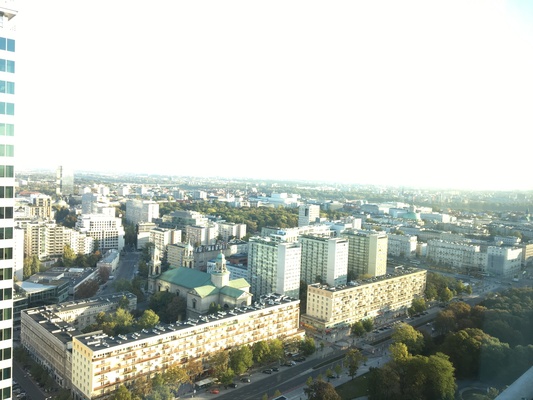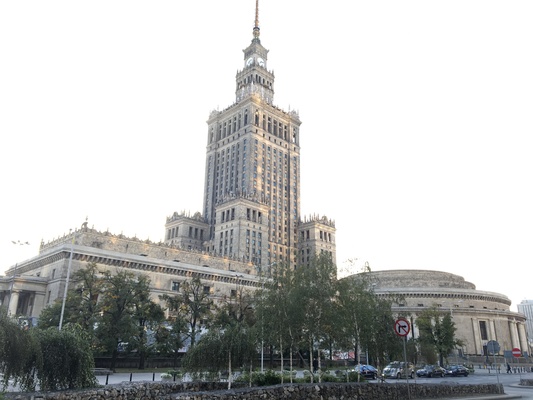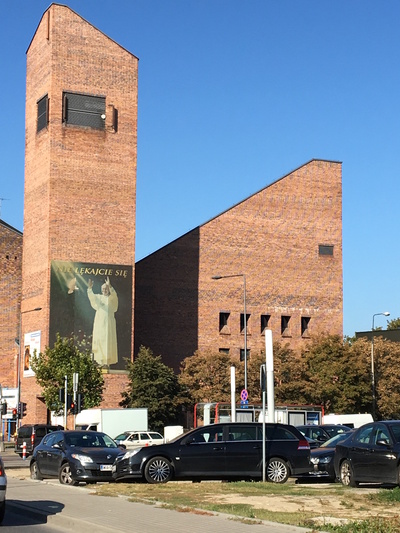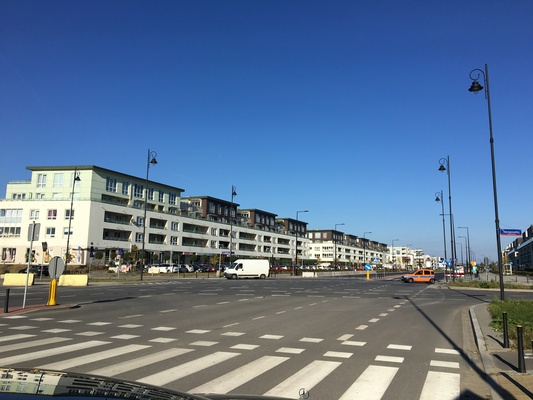- Poland’s governing Law and Justice Party has received much international attention for its populist initiatives aimed to “re-Polonize” the national economy.
- While some of these initiatives have great popular support, the Polish government’s interference in the economy’s free functioning has been a drag on the local markets.
- Despite this challenging operating environment, we are encouraged by the agile response of many private sector Polish enterprises.
My recent investment trip to Poland gave me a greater understanding of the political and economic challenges the country faces. A common complaint from the Poles with whom I met is that wages are too low. Indeed, the average annual wage in Poland was U.S. $12,257 in 2015, as shown in Table 1. While wages have actually grown at a decent pace in Poland over the past eight years (see Table 2), especially in light of the economic slowdown in Europe, the low absolute level of wages in Poland is a key reason so many young Poles look for work abroad.
| Mexico | Poland | Greece | Spain | United Kingdom | |
|---|---|---|---|---|---|
| Average Annual Wage (U.S. Dollar)a | $8,095 | $12,257 | $19,567 | $30,746 | $49,677 |
- aIn 2015 constant prices at 2015 U.S. dollar exchange rates
- Note: average annual wages per full-time and full-year equivalent employee in the total economy.
- Source: OECD.
| 2007 | 2015 | Compound Annual Growth Rate (CAGR) | |
|---|---|---|---|
| Average Annual Wage (Polish Zloty) | 33,767 zł | 46,203 zł | 4.58% |
| Average Annual Wage (U.S. Dollar)a | $10,585 | $12,257 | 2.12% |
- aIn 2015 constant prices at 2015 U.S. dollar exchange rates
- Note: average annual wages per full-time and full-year equivalent employee in the total economy.
- Source: OECD.
Not surprisingly, disposable income was a central theme in the October 2015 presidential election, as so many Poles were eager for higher incomes. In fact, a central pillar of the victorious Law and Justice Party’s 2015 campaign was the “500+ Child program,” a social spending initiative that pays Polish families 500 Polish zloty per month (equivalent to U.S. $120 per month) for each child beyond the first in their household. With the $12,257 average annual wage in Poland referenced in Table 1, the “500+ Child program” payment amounts to a 5.9% increase for the average four-person, dual-income family, and an 11.8% increase for a dual-income family with three children. The program has resulted in a significant bump to disposable income in Poland, and is the most popular initiative of the Law and Justice Party’s first year in office.
While the 500+ Child program has been well received, other government-enacted regulatory and policy changes have been controversial. Proposed restrictions on the media and changes to abortion laws have led to widespread protests across Poland. The Law and Justice Party has thus far received international attention for these and other populist plans aimed to “re-Polonize Poland.” Putting social issues aside, the negative impact of the Law and Justice Party’s policies on the economy is clear. One glaring example is the installation of new senior management and advisory boards at most of Poland’s state-controlled companies – most significant projects have been placed on hold as these new business heads get a handle on their new posts. In one instance, the senior management team of a large Polish utility has been changed twice in the course of the past year, causing extended project delays and budget freezes. Due to the size of most of these state-controlled companies, the adverse impacts of such budget freezes and project delays can be felt across the Polish economy, not only in the sectors in which these entities operate. The delayed contracts and cessation of non-essential hiring have inevitably led to a drag on corporate earnings throughout the Polish economy.
This government’s interference in the Polish economy has seemingly weighed on both market performance and sentiment. However, the response from some of Poland’s private enterprises is encouraging: three of the corporate meetings I had on this research trip gave me reasons to be selectively optimistic as a long-term investor in Poland.
First, I met with a company in the information technology (IT) industry that has actively and successfully expanded through acquisitions abroad, overseen by its talented and experienced team of Warsaw-based engineers. The regions and business lines into which the company has expanded have diversified its cash flows in meaningful ways – by geography, by currency, by sector, and in terms of customer concentration. Of particular interest to me is a recent acquisition that will likely allow the company to sell its IT services to healthcare institutions in Israel. After multiple acquisitions over the past decade in different countries and across regions, this company now generates 70% of its revenues outside of Poland. I admire this company’s tenacity in continuing to focus on its domestic business while simultaneously expanding into regions where the outlook appears more attractive.
Second, a consumer staples company is using its dominance in the wholesale market and corresponding logistics infrastructure to expand into new smaller-format stores, including mobile shops and local delis. This type of prudent innovation, along with new low-cost product offerings, are encouraging responses to today’s uncertain economic outlook.
Lastly, I met with a company in the hospitality sector that caters to business travelers through a focus on enhanced digital conveniences such as auto check-in and one-click repeat reservations, innovations that are new to the Polish hospitality market. The company has already expanded into eight countries and is evaluating opportunities in an additional seven markets.
Those who are familiar with Poland’s historical legacy will know that a large portion of its companies were previously state run. Many have since transformed into private companies that are accustomed to government intervention, yet are driven by an entrepreneurial spirit. I was excited to see that such Polish companies are navigating the country’s current troubles by innovating with new, low-cost product offerings, and by prudently expanding overseas to diversify business risk.
While politics has been a polarizing force in Polish society of late, I was heartened to see that it does not dominate all aspects of the country. Poland’s importance to Europe is undeniable – Poland is the EU’s sixth largest economy and is a so-called “front-line” state as it shares a border with Russia. Encouraging progress in private sector business has been achieved. Of note, Poland has advanced one spot to 24th position in the World Bank's 2017 Ease of Doing Business Report; the upgrade was based on a new insolvency law, amendments to construction law, and a speedier electricity connection process.1 There are some standout Polish companies that continue to expand their businesses domestically and abroad, despite the current political environment, and some who are using this period of uncertainty to strengthen their market positions. Most Poles are aware that in the 27 years that Poland has been a democracy, all but one national election has resulted in a party shift. So while the current government may have a heavy-handed political agenda, the historical trend suggests that its leadership will be short-lived.
Kate JaquetWarsaw








- The views and information discussed in this commentary are as of the date of publication, are subject to change, and may not reflect the writer’s current views. The views expressed represent an assessment of market conditions at a specific point in time, are opinions only and should not be relied upon as investment advice regarding a particular investment or markets in general. Such information does not constitute a recommendation to buy or sell specific securities or investment vehicles. It should not be assumed that any investment will be profitable or will equal the performance of the portfolios or any securities or any sectors mentioned herein. The subject matter contained herein has been derived from several sources believed to be reliable and accurate at the time of compilation. Seafarer does not accept any liability for losses either direct or consequential caused by the use of this information.
- Kate Jaquet is a Registered Representative of ALPS Distributors, Inc.
- Source: The World Bank, “Doing Business 2017: Equal Opportunity for All,” Fourteenth Edition, 2017.
![[Chrome]](/_layout/images/ua/chrome.png)
![[Firefox]](/_layout/images/ua/firefox.png)
![[Opera]](/_layout/images/ua/opera.png)
![[Microsoft Edge]](/_layout/images/ua/edge.png)